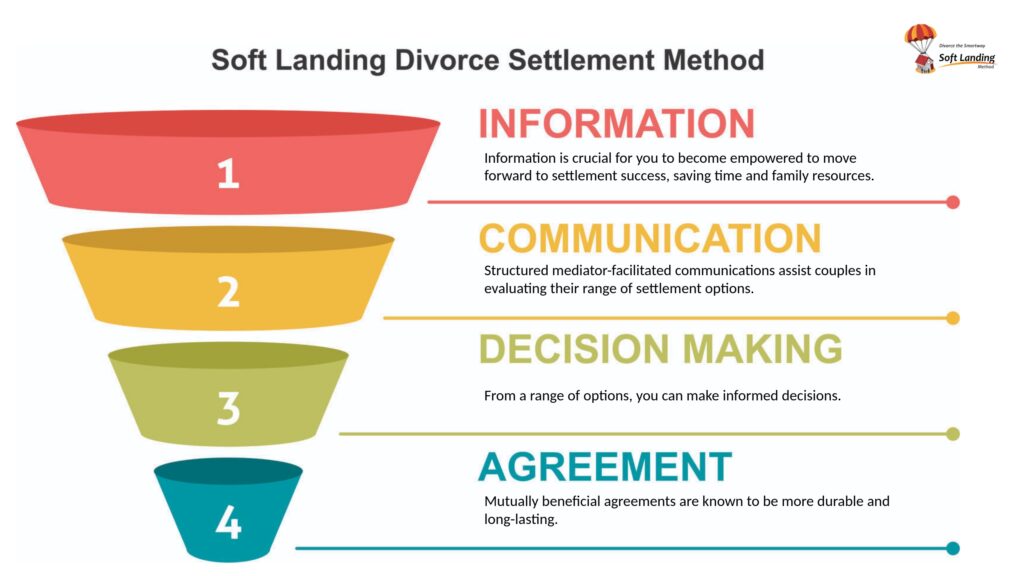Examples of the Canada’s Adversarial System
The adversarial system can be observed in various legal contexts, from criminal cases to civil disputes. In criminal trials, for instance, the prosecution and defence present their respective arguments and evidence before a neutral judge or jury. Similarly, in civil lawsuits, opposing parties seek to prove their case by discrediting their opponent’s position. This aggressive approach is deeply ingrained in legal traditions around the world.
However, the adversarial system’s drawbacks and limitations are becoming increasingly apparent. While it may ensure vigorous representation for each party, it must often prioritize the underlying issues or foster cooperative solutions. This has led to a growing recognition that an alternative approach may be needed.
One of the key criticisms of the adversarial system is that it can lead to a win-at-all-costs mentality, where the focus shifts from seeking justice to simply outmaneuvering the other side. This can result in a distortion of the truth and a lack of transparency in the legal process. Critics argue that a more collaborative and truth-seeking approach, such as the inquisitorial system used in some European countries, may be more effective in uncovering the facts of a case.
Moreover, the adversarial system places a heavy burden on individuals to navigate complex legal procedures and rules, often leading to unequal access to justice. Those with more significant financial resources may be able to afford high-powered legal representation, giving them an advantage over less affluent parties. This raises concerns about the fairness and equity of the legal system, prompting calls for reforms to level the playing field for all participants.
Pros and Cons of the Adversarial System
Like any legal system, the adversarial approach has its strengths and weaknesses. On the positive side, it can promote robust advocacy, preventing any single party from dominating the proceedings. It also boosts transparency as each party’s arguments and evidence are presented and scrutinized.
Moreover, the adversarial system plays a crucial role in upholding the principle of due process. Allowing each side to present their case and challenge the opposing party’s arguments ensures that all legal rights are protected and respected. This aspect of the adversarial system is fundamental in safeguarding individuals’ liberties and preventing arbitrary decisions.
Nevertheless, the adversarial system also has notable shortcomings. One of its primary downsides is the creation of an inherently win-lose environment, which can perpetuate conflict and hinder cooperation. Moreover, the intense focus on winning often overshadows the underlying issues, compromising the potential for fair and equitable resolutions.
Furthermore, the adversarial nature of the system can lead to a prolonged and costly legal process. The emphasis on outperforming the opposing party through strategic maneuvers and tactics can result in lengthy court battles, increasing the financial burden on all parties involved. This protracted litigation delays justice and limits access to legal recourse for individuals with limited resources.
The Adversarial System in Canada
Like many other common law countries, Canada has long employed the adversarial system as the default approach to legal proceedings. This system pits two opposing parties against each other in a courtroom setting, with a judge or jury serving as a neutral arbiter of the law. The adversarial model is known for its emphasis on zealous advocacy, where each party vigorously presents their case to persuade the decision-maker of the merits of its position.
However, in recognizing the limitations of this system, Canada has also incorporated elements of alternative dispute resolution (ADR) methods into its legal framework. ADR techniques offer parties a more collaborative and less confrontational way to resolve disputes outside traditional litigation. These methods include mediation, where a neutral third party facilitates negotiations between the parties, and collaborative law, where lawyers work together with their clients to reach a mutually acceptable agreement.
While the adversarial model still dominates certain areas of law, such as criminal trials, Canadian courts and legal professionals increasingly encourage parties to explore mediation, collaborative law, and other ADR techniques. This shift reflects a growing recognition of the benefits of cooperation and consensus building, particularly in family law cases. By embracing a more holistic approach to dispute resolution, Canada aims to promote efficiency, cost-effectiveness, and client satisfaction in its legal system.
The Evolution of Family Law Systems
Family law systems have traditionally been grounded in the adversarial approach. Divorce proceedings, custody battles, and property disputes have all been subject to the win-lose mentality that characterizes the adversarial system. However, as our understanding of the complexities of family dynamics has deepened, so has our understanding of the need for a more holistic approach.
Families involved in legal disputes often benefit from a more empathetic and cooperative resolution process than the adversarial model. Family courts increasingly embrace alternative dispute resolution methods, recognizing the value of preserving relationships and prioritizing the best interests of children and parents alike.
One significant development in family law systems is the rise of collaborative law, where both parties work with their respective attorneys to reach a mutually agreeable settlement outside of court. This approach fosters open communication and cooperation, aiming to reduce conflict and promote long-term solutions tailored to each family’s unique needs.
Moreover, therapeutic jurisprudence has gained traction in family law, emphasizing all parties’ psychological and emotional well-being. Judges and legal professionals are encouraged to consider the impact of legal processes on families’ mental health, promoting healing and growth alongside legal resolutions.
Understanding the Adversarial System in Family Law
The adversarial system’s impact on family law cases can be particularly significant. When families are forced into a combative legal process, the potential for long-lasting damage is high. Children, in particular, may suffer the consequences of an adversarial approach, as their well-being often takes a backseat to the parents’ desire to win.
Moreover, the adversarial system may need to adequately address the complex emotional and psychological dynamics that underpin family disputes. It needs to recognize the importance of collaboration and cooperation in creating sustainable solutions that address the needs of all parties involved.
Family law cases often involve intricate relationships and deeply rooted emotions that cannot be quickly resolved through a contentious legal battle. The adversarial system, focusing on winning and losing, may exacerbate tensions and prolong conflicts, leading to heightened stress and animosity among family members.
Furthermore, the adversarial nature of the legal process can escalate costs and prolong the duration of family law cases. Litigation can be financially draining for all parties involved, leading to increased resentment and financial strain, especially in cases where one party has significantly more resources than the other.
Exploring Alternative Dispute Resolution Methods
Alternative dispute resolution methods offer a refreshing departure from the adversarial system, emphasizing collaboration and compromise. Mediation, in particular, has gained traction in family law cases. In mediation, a neutral third party facilitates discussions, helping them identify common ground and find mutually agreeable solutions.
Collaborative law is another emerging alternative to the adversarial system in family law. Each party retains their lawyer in collaborative law, but both commit to resolving the dispute outside of court. This approach encourages open communication and shared problem-solving, allowing parties to shape the outcome on their terms.
Moreover, arbitration is another alternative dispute resolution method widely used in commercial disputes. In arbitration, a neutral arbitrator or panel of arbitrators is chosen by the parties to hear the case and make a binding decision. This process is often faster and more cost effective than traditional litigation, making it an attractive option for businesses seeking efficient dispute resolution.
Restorative justice is a unique approach to resolving conflicts that focuses on repairing the harm caused by criminal behaviour. It involves bringing together the victim, offender, and community members to discuss the impact of the crime and find a resolution that promotes healing and reconciliation. This method emphasizes accountability and empathy, aiming to address the underlying causes of criminal behaviour and prevent future offences.
The Role of Mediation in Resolving Family Conflicts
Mediation has tremendous potential for defusing conflicts and fostering positive outcomes in family law cases. By promoting open dialogue and understanding, it allows parties to address their concerns more constructively. Mediation can help parents develop co-parenting plans, divide assets through negotiation, and define mutually beneficial custody arrangements.
Through the mediation process, parties are encouraged to consider the interests of all family members involved, including the children. By focusing on the shared goal of finding a resolution that serves everyone’s needs, mediation contributes to preserving relationships and reducing long-term animosity.
Furthermore, mediation provides a confidential and non-adversarial setting for families to resolve disputes. It offers a more cost-effective and efficient alternative to traditional litigation, which can be emotionally draining and costly. The mediator, a neutral third party, facilitates communication between the parties and helps them explore creative solutions that may not be available in a courtroom.
Moveover, mediation empowers families to retain control over the outcome of their cases rather than leaving it in the hands of a judge. This autonomy can lead to more personalized and sustainable agreements that take into account each family’s unique dynamics. Ultimately, mediation can not only resolve immediate conflicts but also lay the foundation for healthier and more cooperative relationships in the future.
The Impact of the Adversarial System on Children and Families
Children are often the silent victims of adversarial legal proceedings in family law cases. The system’s focus on winners and losers usually disregards the emotional and psychological toll it takes on the younger family members. Prolonged legal battles between parents can lead to increased stress, anxiety, and feelings of instability for children.
Recognizing the negative impact of adversarial processes on children, professionals in the legal and mental health fields have begun to advocate for a more child-centric approach. By prioritizing the welfare and best interests of children, the legal system can protect them from the harm that may arise from protracted litigation.
Furthermore, studies have shown that children who are exposed to high-conflict legal disputes between their parents may experience long-term effects on their mental and emotional well-being. These effects can manifest in various ways, such as academic struggles, behavioural issues, and difficulties forming healthy relationships in the future. Legal professionals and policymakers must consider these repercussions when advocating for a more collaborative and child-focused approach in family law cases.
In addition, the financial burden of prolonged adversarial legal battles can also have a significant impact on children and families. The costs associated with litigation, including attorney fees, court expenses, and other legal proceedings, can drain family resources and create additional stress and hardship. This financial strain can further exacerbate the challenges faced by children, potentially leading to instability in their living situations and overall well-being. Therefore, promoting alternative dispute resolution methods and early intervention strategies can benefit the families involved and safeguard the interests of the children caught amid legal conflicts.
Moving Towards a More Holistic Approach in Family Law
As the shortcomings of the adversarial system become increasingly evident, the legal community is shifting toward a more holistic approach to family law. Recognizing the importance of nurturing healthy relationships and prioritizing the well-being of children, professionals are exploring innovative ways to facilitate collaboration and cooperation.
Families can develop solutions that align with their unique circumstances and desires by embracing alternative dispute resolution methods such as mediation and collaborative law. Moving beyond the adversarial system signals a shift towards empathy, understanding, and a genuine commitment to crafting resolutions that foster long-term harmony and well-being for all parties involved.
In addition to alternative dispute resolution methods, another critical aspect of the shift towards a more holistic approach in family law is the integration of mental health professionals into the legal process. Recognizing the emotional complexities involved in family disputes, having therapists or counsellors as part of the legal team can provide invaluable support to individuals navigating challenging situations. These professionals can help parties communicate effectively, manage emotions, and work toward solutions, prioritizing mental and emotional well-being.
Furthermore, the holistic approach in family law extends beyond the legal realm to encompass community resources and support networks. Collaborating with social workers, child psychologists, and other community organizations can provide families comprehensive assistance during transition and conflict. By tapping into these external resources, legal professionals can ensure that families receive the holistic support they need to navigate the complexities of family law issues.



















































